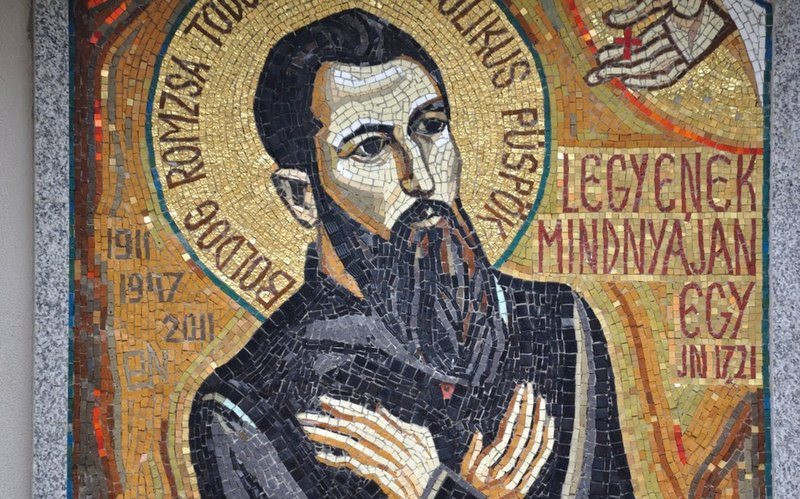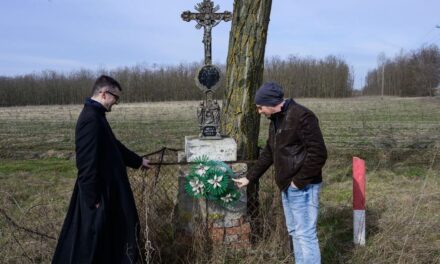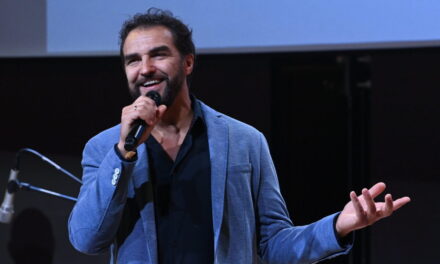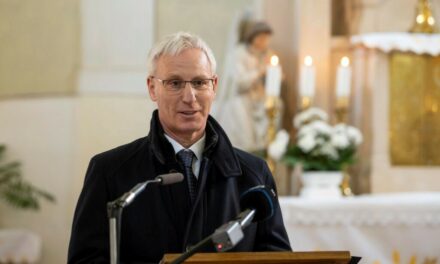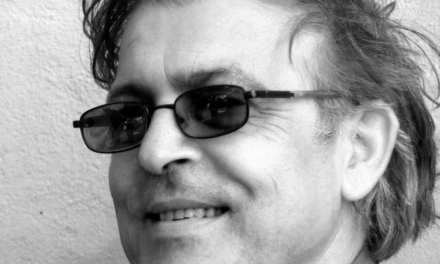The 20th anniversary of the beatification of the consecrated martyr Tódor Romzsa was commemorated with County Bishop Ábel Szocska A. on June 27 in the Greek Catholic church in Nyíregyháza-Örökösföld.
A Holy Liturgy in Hungarian and Church Slavonic was presented in Nyíregyháza-Örökösföld, on the twentieth anniversary of Tódor Romzsa's beatification.
The work of the bishop is also a good example of the possibility of reconciling differences between ethnic groups - he was Hungarian, but he considered it natural that he should speak to all his priests and followers in their language. During the Soviet persecution of religion and the church - which was aimed at eliminating the Greek Catholic Church (merging it into the Orthodox Church) in the newly acquired territories (also in Ukraine, including Transcarpathia) - as a bishop, Romzsa naturally became an important figure in the peaceful resistance to this. He resolutely rejected the refusal to unite with Rome and the conversion to the Orthodox Church, calling on his priests and followers to persevere and unite, so Stalin brutally murdered him.
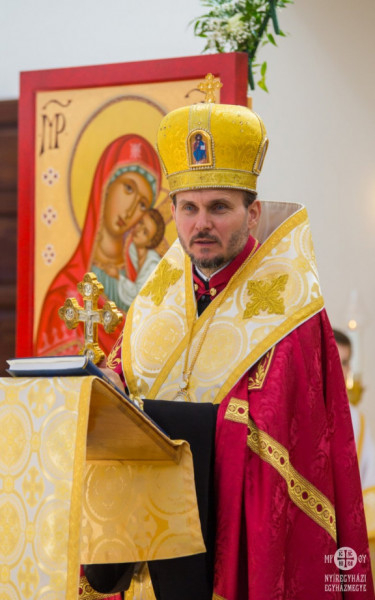
Bishop A. Ábel Szocska/Source: magyarkurir.hu
The orator of the celebration was County Bishop A. Ábel Szocska, who recalled the moments of Bishop Tódor's martyrdom by reading reminiscences published decades ago in the newspaper Grögkatolikus Szemle. First, he read out details from the memories made public in 1990 by Tódor Romzsa's devoted hospital nurse, Basilite sister Teofila, who was also present at the bishop's deathbed, and then he quoted the words of Bishop János Szemedi of Münkac, who was entrusted with the preparation of the beatification, who expressed his joy that Tódor the bishop will be beatified together with several other martyrs. They "stood heroically in difficult historical times, in persecution, suffering, many years of slavery and gave their blood for their faith. Blessed are those who are persecuted for the sake of justice," were the quoted thoughts of the Bishop of Münkac.
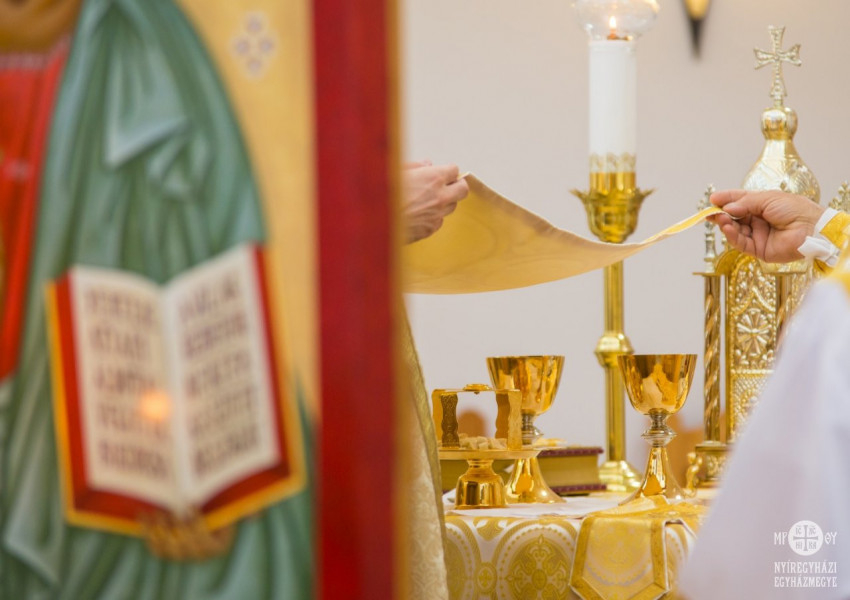
Photo: magyarkurir.hu
Together with Father Dániel, Bishop Ábel asked those present: "Would we be able to put everything aside, faithful to the memory of Bishop Tódor, and accept death for Christ, would we be able to make a sacrifice for him?"
He formulated the message of the holiday in the light of this: "The Christian life involves sacrifice, but this sacrifice is dear to the Lord God, and God makes us happy for it." After all, the Church is still exposed to persecution today, and confessors are still needed. But martyrdom is a gift from God, it is not given to anyone, said the chief pastor. And he recalled the related teaching from the beatitudes: "Blessed are those who are persecuted for righteousness' sake, for theirs is the kingdom of heaven."
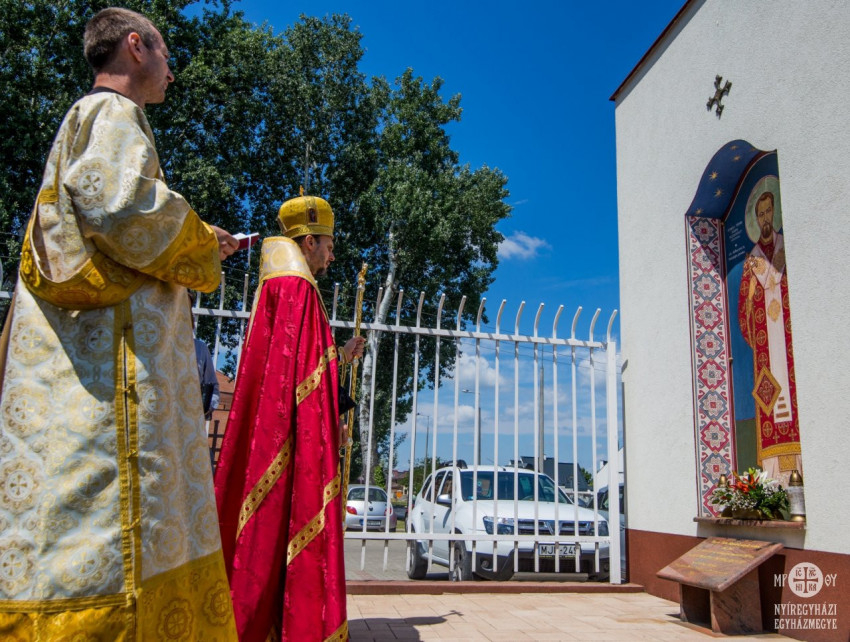
Photo: magyarkurir.hu
Márta Varga, the president of the Nyíregyháza Ruthenian Minority Self-Government, spoke at the ceremony, recalling that five years ago the community erected and inaugurated a Romzsa monument in the churchyard, where they can stop, pray to the martyred bishop, and strengthen their identity. Márta Varga opened the exhibition that can be viewed in the gallery, featuring the works of icon painter Viktória Monostory, created using various techniques.
Source and featured image: magyarkurir.hu

